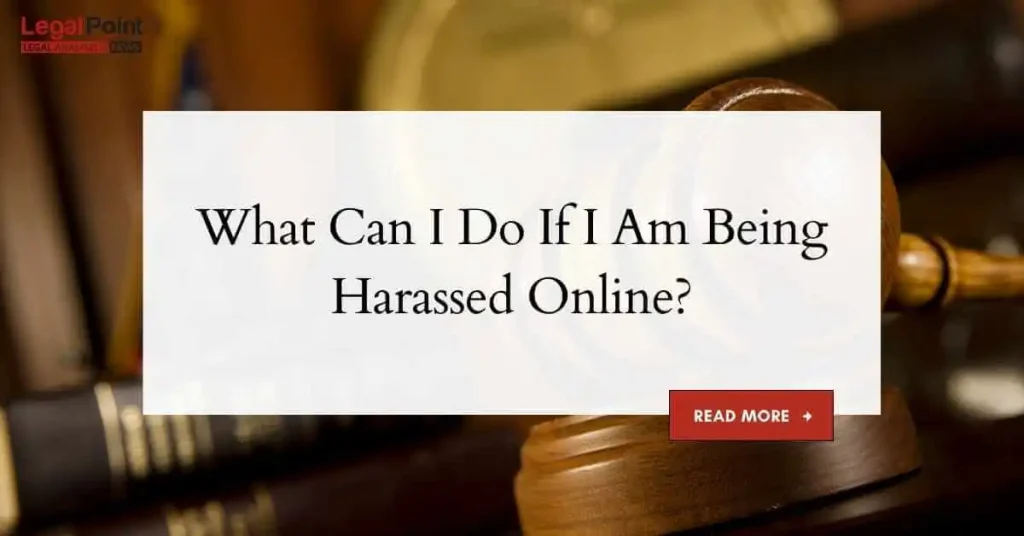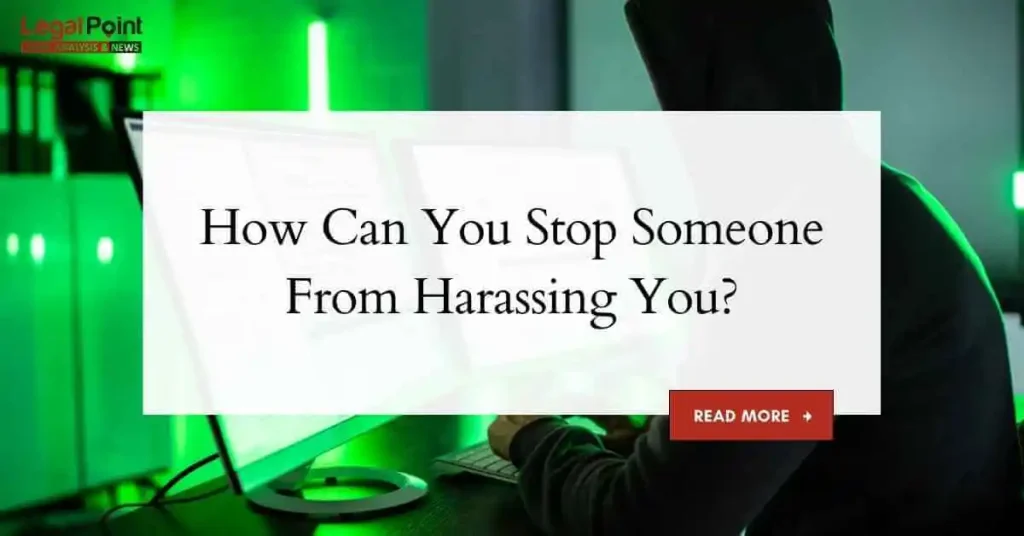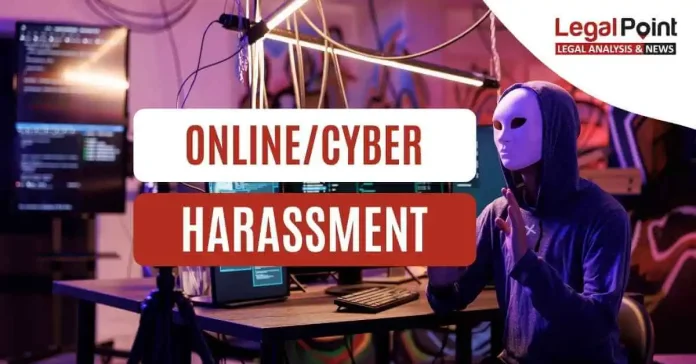What is Online/Cyber Harassment?
Online or cyber harassment refers to repeated, harmful, and unwanted behavior conducted through digital platforms.
This behavior is often intended to intimidate, humiliate, or cause distress to the victim. It can include threatening messages, public shaming, or even creating fake profiles to harm someone’s reputation.
Cyber harassment differs from traditional harassment because it happens in the virtual world, making it more common.
The digital nature allows harassers to hide behind anonymity, which often emboldens them to escalate their behavior.
Victims may feel powerless because the harassment can reach them anytime and anywhere, impacting their mental and emotional well-being.
Table of Contents
Types and Examples of Cyber Harassment
Cyberharassment takes many forms, each with unique characteristics and implications.
One of the most common forms is cyberstalking, where someone persistently monitors or contacts you online, often creating fear and anxiety. This can include sending numerous messages or tracking your online activities without consent.
Another form is online defamation, where false or harmful statements about someone are spread publicly to tarnish their reputation. This often involves creating rumors or sharing manipulated images.
A particularly harmful type is sexual harassment, where explicit messages, images, or videos are sent without consent. Victims may also face blackmail or threats to release private content.
Trolling is another example where individuals post offensive or inflammatory remarks solely to provoke a reaction. These remarks can range from mildly annoying to extremely abusive, depending on the troll’s intent.
While these examples highlight some of the more common forms of cyber harassment, the list is far from exhaustive. The impact of these actions is severe, often leaving victims feeling helpless or unsafe.
What Can I Do If I Am Being Harassed Online?

The first step in dealing with online harassment is to stay calm and avoid reacting impulsively.
Engaging with the harasser can sometimes escalate the situation.
Instead, document every instance of harassment. Save screenshots, messages, or emails that can serve as evidence if you decide to take action.
Blocking the harasser on all platforms is an effective way to cut off their access to you. Social media platforms and messaging apps often have features that allow you to block or mute users, which can provide immediate relief.
Reporting the incident to the platform where it occurred is also crucial. Most online platforms have clear policies against harassment and provide tools to report abusive behavior. Ensure you follow their reporting guidelines to expedite the process.
If the harassment persists, consider reaching out to local authorities or a cybercrime unit.
Many countries have laws specifically addressing cyber harassment, and law enforcement agencies are equipped to investigate and take legal action.
Facing online or cyber harassment? Contact Legal Point, Pakistan’s first digital law firm, at 0333-7703712 or reach out through our website for expert legal assistance. We’re here to help you protect your rights in the digital world.
What if My Child is Being Harassed?
When it comes to children, online harassment can be particularly damaging as they may not fully understand how to deal with it.
As a parent, the first step is to create a safe and open environment where your child feels comfortable discussing their experiences.
Reassure them that they are not at fault and that you will help them address the issue.
Monitor their online activity to identify signs of harassment, such as changes in behavior or reluctance to use certain apps.
Educating them about safe online practices, such as not sharing personal information or accepting requests from strangers, is essential.
If the harassment involves threats or explicit content, report the incident to both the platform and local authorities.
Schools can also play a role in addressing the issue, so informing teachers or administrators about the situation may be helpful.
Also Read: How to Deal with Online Defamation in Pakistan
How Can You Stop Someone From Harassing You?

Stopping a harasser requires taking decisive action. Begin by severing all communication with the individual. Blocking them on social media, messaging apps, and other platforms can prevent further interaction.
Adjust your privacy settings to limit who can view your posts or contact you.
Many platforms allow you to control who sees your content, ensuring that only trusted individuals have access.
If the harassment continues despite these measures, you may need to escalate the matter legally.
Filing a complaint with the authorities or seeking a restraining order can send a strong message to the harasser that their behavior will not be tolerated.
What Will the Police Do About Online Harassment?
When you report online harassment to the police, they will typically begin by gathering evidence.
This includes reviewing screenshots, chat logs, or any other documentation you provide. Depending on the severity of the case, they may use tools to trace the harasser’s identity, such as tracking IP addresses.
Once the evidence is collected, the police may issue warnings or initiate legal proceedings against the harasser.
The consequences can range from fines to imprisonment, depending on the laws in your region and the nature of the harassment.
Reporting to the police not only helps resolve your case but also contributes to deterring others from engaging in similar behavior.
Facing online or cyber harassment? Contact Legal Point, Pakistan’s first digital law firm, at 0333-7703712 or reach out through our website for expert legal assistance. We’re here to help you protect your rights in the digital world.
What If the Police Can’t Help?
Sometimes, the police may not have the resources or evidence to act immediately. In such cases, seeking help from other organizations can be beneficial.
NGOs or cyber safety organizations often provide resources, advice, and emotional support to victims of online harassment.
You can also consult a lawyer specializing in cyber laws to explore other legal options. Civil lawsuits, for example, can provide compensation for emotional distress or damage to your reputation.
Online forums and support groups can offer valuable guidance and emotional support, helping you feel less isolated as you navigate the situation.
Cyber Harassment Related Laws

In Pakistan, the Prevention of Electronic Crimes Act (PECA) 2016 is a comprehensive law addressing cyber harassment. Under this act, individuals found guilty of online harassment can face penalties, including fines and imprisonment.
The act covers various offenses, such as unauthorized access to data, identity theft, and the transmission of explicit content.
Reporting incidents to the Federal Investigation Agency (FIA) ensures that cases are handled by trained professionals familiar with the intricacies of cybercrime.
Understanding these laws empowers victims to take action and seek justice.
What Do You Need To Go To Court?
If you decide to take your case to court, preparation is key.
Start by gathering all evidence, such as screenshots, emails, or chat logs, that demonstrate the harassment. This evidence will form the foundation of your case.
Filing a formal complaint is the next step. A lawyer can help you draft the necessary documents and navigate the legal process.
Witnesses or expert testimonies can further strengthen your case, making it more likely to succeed in court.
Can You Sue Someone for Harassing You Online?
Yes, suing someone for online harassment is possible and often an effective way to seek justice.
By filing a lawsuit, victims can claim compensation for damages, including emotional distress and harm to their reputation.
However, the legal process can be complex, requiring clear evidence and the assistance of a skilled lawyer.
While pursuing legal action may seem daunting, it is a powerful tool for holding harassers accountable.
Also Read: What is Online Sexual Exploitation and Abuse?
What Is the Cost of Suing Someone For Online Harassment?
The cost of suing someone for online harassment depends on several factors, including legal fees, court fees, and the complexity of the case.
In Pakistan, these costs can vary widely, but many lawyers offer flexible payment options or free consultations.
Despite the expenses, taking legal action can provide closure and send a strong message that harassment will not be tolerated.
FAQs
1. How long does it take to resolve an online harassment case?
The timeline varies, depending on the complexity of the case and legal processes.
2. Can I file a complaint anonymously?
In some jurisdictions, anonymous complaints are possible, but consult local laws for clarity.
3. Are there helplines for cyber harassment victims?
Yes, many countries, including Pakistan, have helplines specifically for cyber harassment victims.
Conclusion
Online harassment is a pervasive issue that affects people worldwide.
Understanding its various forms, knowing your rights, and taking action are crucial in addressing and preventing it.
Whether it’s documenting evidence, reporting to authorities, or seeking legal help, there are steps you can take to protect yourself and others.
Together, we can create a safer online space for everyone.
Facing online or cyber harassment? Contact Legal Point, Pakistan’s first digital law firm, at 0333-7703712 or reach out through our website for expert legal assistance. We’re here to help you protect your rights in the digital world.



